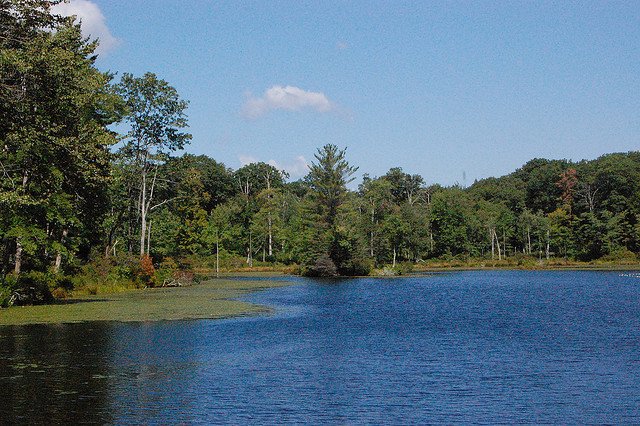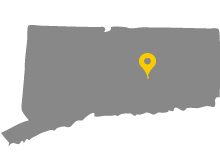
Gay City State Park, Hebron – Russ Glasson
The east-central Connecticut town of Hebron lies at Tolland County’s southern tip. Incorporated in 1708, Hebron had a strong agricultural base and up through the late 1800s boasted manufacturers of charcoal (once a fuel source for other industries), bricks, textiles, paper, and other goods. Town history also reveals Connecticut’s connections to slavery, abolitionism, and post-emancipation agitation for freed people’s rights. For example, 19th-century Hebron suffragist Josephine Griffing advocated nationally for the education and support of newly freed African Americans. Ruins of Hebron’s industrial past can be found in Gay City State Park, which takes its name from the abandoned mill town that once stood within its boundaries.





